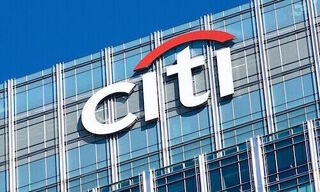AI Becomes an Earnings Season Staple
As the adoption of artificial intelligence continues to accelerate, the topic has become increasingly ubiquitous in the banking sector’s earnings reports.
As the first-half earnings season draws near a close, artificial intelligence (AI) has become noticeably more prominent in the banking sector. The topic is being featured in financial reports, presentations and calls with journalists or analysts.
finews.asia reviews some examples of banks discussing adoption and returns from the emerging technology.
Enhancing Internal Efficiency
By far, the most commonly discussed benefit from leveraging AI tools is enhancing internal efficiency and supporting back office functions.
HSBC, for example, noted that AI has helped improve customer service, process efficiency, technology productivity and protect customers. It is investing in flagship AI projects across the group, used generative AI in five corporate and investment banking markets to support credit analysis write-ups and deployed coding assistants to over 20,000 engineers, leading to efficiency in time spent coding to be upped by 15 percent.
Other banks have also spoken about the topic in more general terms. Citi CEO Jane Fraser remarked in an earnings call that AI tools are being used to support areas such as data quality. In the latest, LGT said it is making targeted investments in digitalization and AI to «deliver new products and services for clients as well as enhance internal efficiency».
Proprietary Platform
In the case of Julius Baer, it has decided to showcase its proprietary platform JAI, noting that AI risk awareness training is now mandatory for all employees who work with the tool.
«Powered by advanced language models, this innovative tool is designed to help our employees work more efficiently and to optimize decision-making processes. A new use case, JAI Investment Insights, was introduced, simplifying access to our in-house investment publications,» the bank shared in its first-half report.
Focus on Risk
In Standard Chartered's financial report, there was particularly strong emphasis on risk, noting a large increase in AI usage for fraud, scams and misinformation alongside potential societal and economic impacts from the replacement of jobs. It also underlined other concerns, such as the ethical use of data and protecting privacy and security.
In response, it is strengthening governance through efforts like as the formation of a «Responsible AI Council».
Top Line Improvement
While most banks have spotlighted improvements on the cost side, DBS highlighted that AI was already making an impact on its top line.
«[P]ast investments we made in the way we work, in data, in AI and GenAI, continue to bear fruit,» said DBS CEO Tan Su Shan in a transcript of a media call. «We are now able to create models that are predictive of money flows. That allows us to capture more than our fair share of deposit growth, net new money, fee growth, and so on.»



























